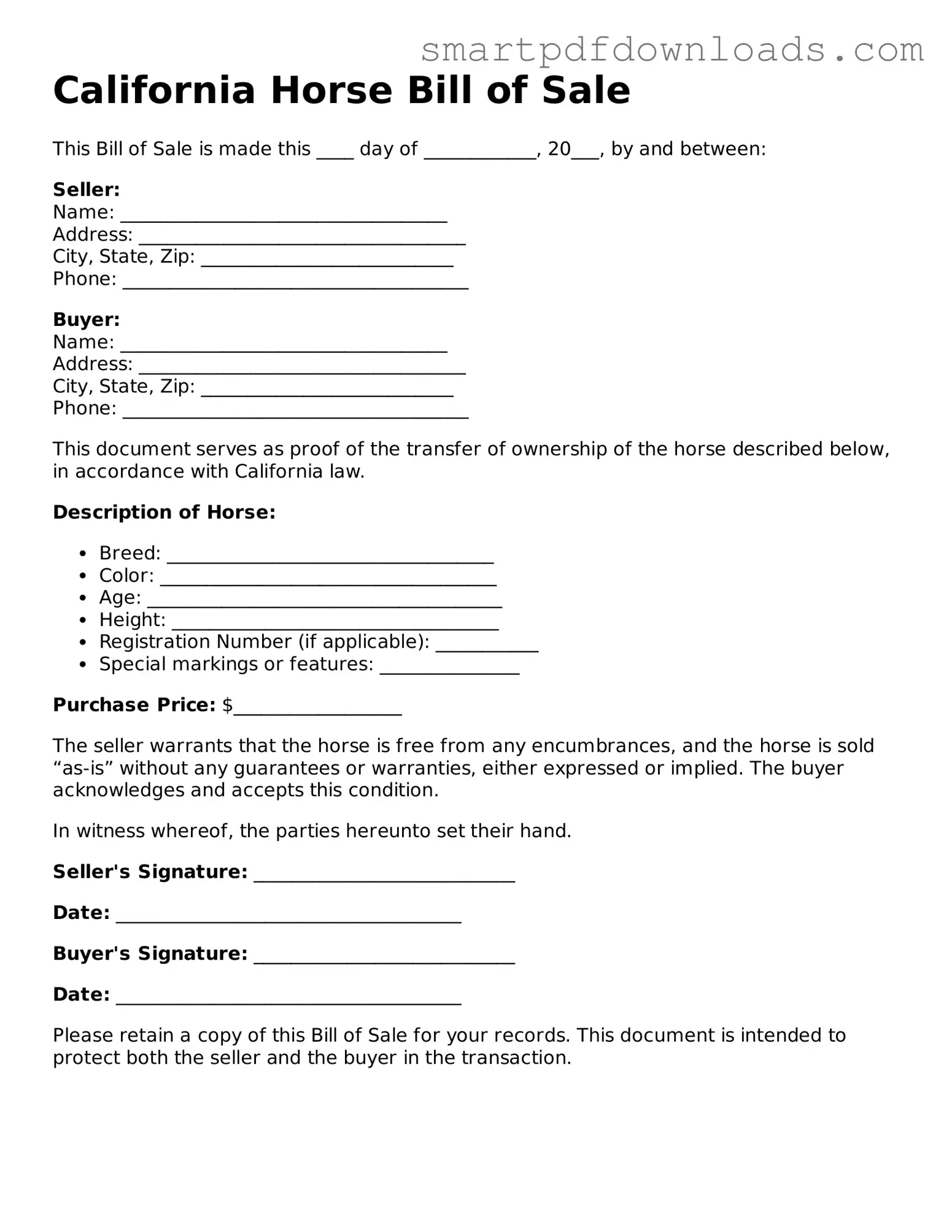Legal Horse Bill of Sale Form for the State of California
The California Horse Bill of Sale form is a legal document used to transfer ownership of a horse from one party to another. This form outlines essential details about the horse, including its description, sale price, and the names of both the buyer and seller. Having a properly completed bill of sale is crucial for ensuring a smooth transaction and protecting the interests of both parties involved.
Edit Horse Bill of Sale Online

Legal Horse Bill of Sale Form for the State of California
Edit Horse Bill of Sale Online

Edit Horse Bill of Sale Online
or
⇓ PDF File
Finish the form and move on
Edit Horse Bill of Sale online fast, without printing.